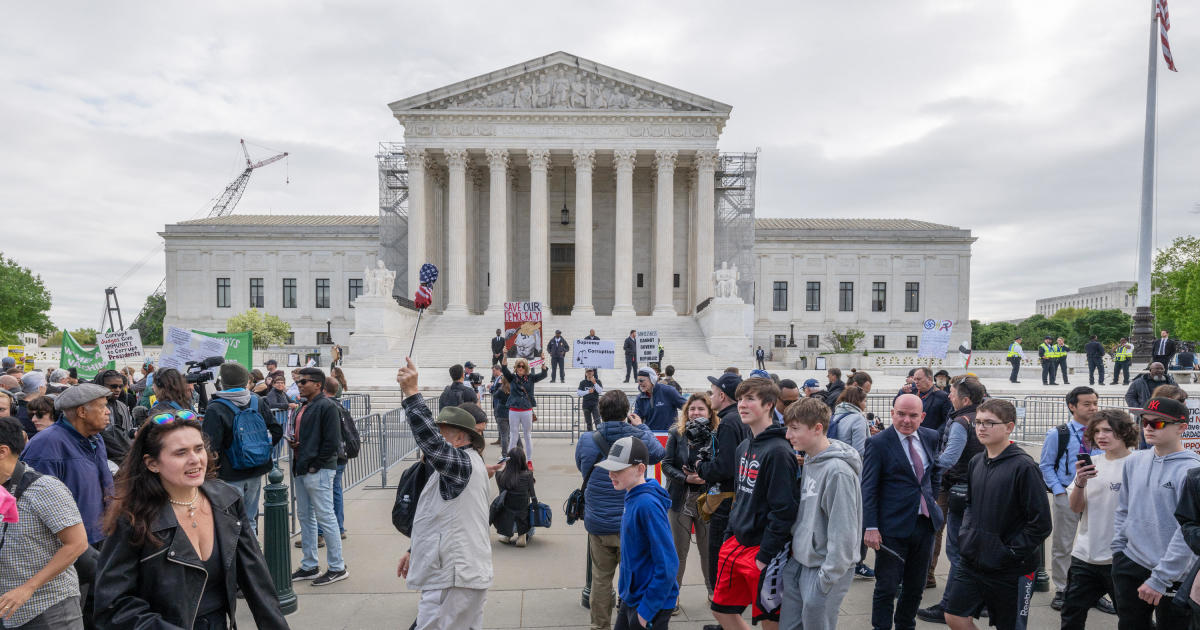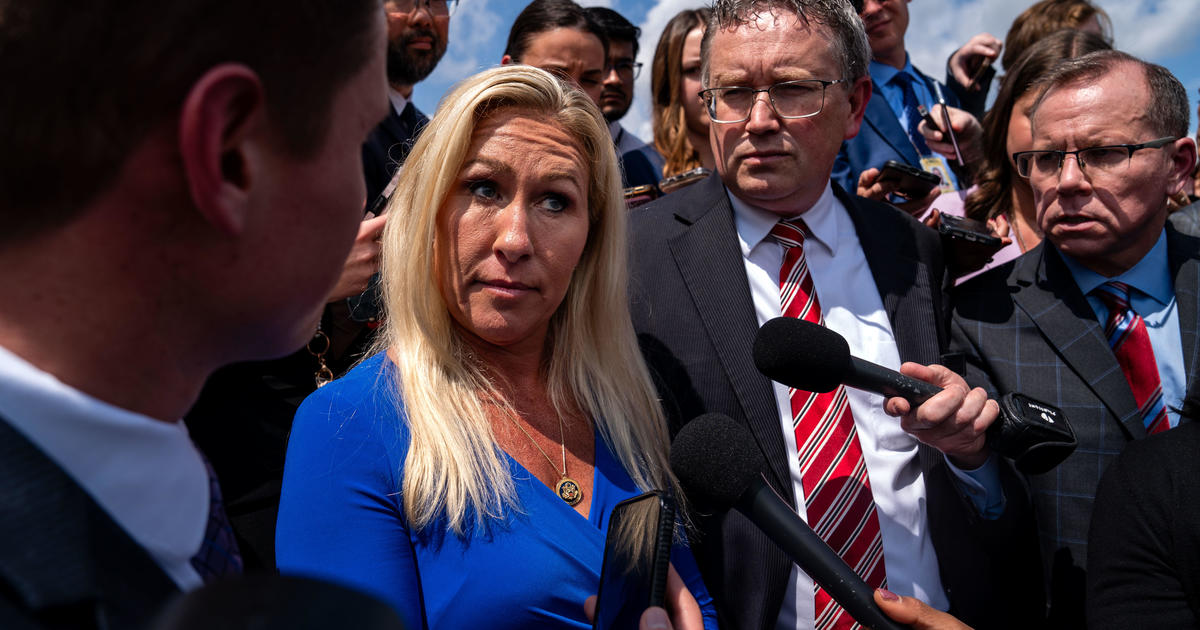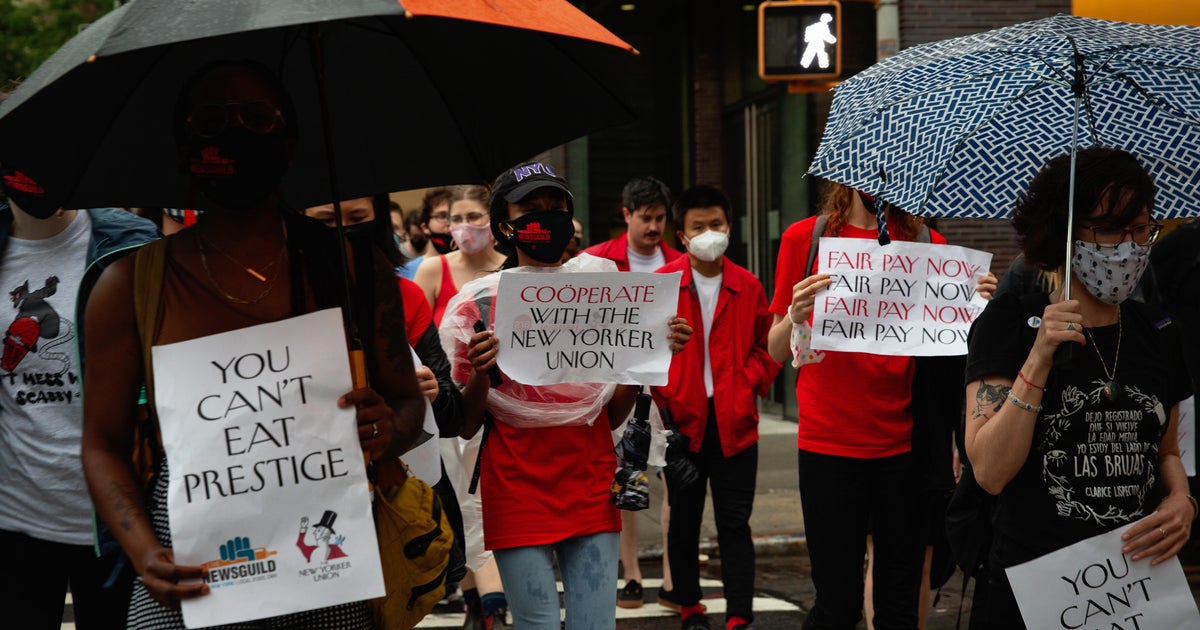Abortion funds see surge in donations with reproductive rights on the line
Donations to abortion funds are pouring in following the leak of a draft majority Supreme Court opinion that is poised to strike down the landmark Roe v. Wade decision protecting a woman's right to have an abortion.
Nonprofit organizations that provide financial and emotional support to pregnant people seeking abortions say they are grateful for the rapid influx of new funds, but that their work — and costs — will grow at even faster rates.
The National Network of Abortion Funds, which helps more than 80 local organizations remove financial and logistical barriers to abortion access, told CBS MoneyWatch that donations "skyrocketed" on Monday evening last week after the draft majority opinion was leaked.
"On Monday night after the draft was leaked, within minutes we had tens of thousands of people come to our website and it actually crashed," said NNAF director Lindsay Rodriguez.
As of Thursday, more than 8,500 people had contributed $800,000 to the fund. An additional 12,000 supporters contributed more than $1.1 million to the NNAF's local member funds through its website.
"It is a silver lining in what is an incredibly abysmal situation. It is impressive and great to see this level of support. Of course we also know the needs of abortions funds are going to multiply so much more exponentially," Rodriguez added.
Another organization, Access Reproductive Justice, which funds abortions for California, raised over $40,000 in just three days after the leak, compared to its usual average of $1,000, according to executive director Jessica Pinckney.
"Huge" lack of resources
Already, most abortion funds can only accommodate between one-quarter and one-third of callers who seek out their assistance in paying for an abortion procedure and associated costs including travel, child care, food and lodging, according to the NNAF. "The gap is huge," Rodriguez said.
Melissa Fowler, chief program officer for the National Abortion Federation, a professional association of abortion providers and clinics, highlighted a similar lack of resources.
"While NAF, like many other organizations, has seen a recent increase in donations, the need continues to drastically outweigh available resources," she said in a statement to CBS MoneyWatch. "As more states become emboldened to decimate abortion access with Roe hanging by a thread, the need to support clinics and help patients travel for care will only grow."
"Only a drop in the bucket"
Overturning the Roe decision would allow states to determine their own abortion restrictions or protections.
Some Republican-led states already restrict abortion access by making it illegal at certain points during a pregnancy. Laws in Texas and Oklahoma ban abortion after six weeks of pregnancy, meaning that women who seek to end their pregnancies after six weeks must travel beyond state lines to obtain the procedure.
According to an analysis by the Guttmacher Institute, a research organization that supports abortion rights, 23 states have so-called "trigger" laws on the books that could restrict abortion rights if the Supreme Court overturns Roe in the coming months.
Should those laws go into effect, the need for more patients to travel greater distances to access care will eat into funds' budgets.
Fund Texas Choice, which covers Texans' travel costs to out-of-state abortion clinics, said it already receives more than 300 calls a month and only has the resources to support up to 130 clients, who on average require between $750 and $1,000 of assistance per procedure. The fund does not pay for the abortion itself, but covers the cost of travel to and from an appointment, in addition to lodging, food and other expenses.
"We expect that to get worse. Our clients will have to travel farther, and gas and flights will become more expensive," said Anna Rupani, executive director of Fund Texas Choice.
She said donations to the fund have increased, but that "it's only a drop in the bucket given what it takes to do the work."
For example, the fund already shells out more than $62,000 monthly on practical support costs related to sending clients out of state for abortions. That doesn't even include spending on staffers' salaries.
High gas prices aren't helping either. "With fuel costs up and inflation up — we used to spend $500 round trip to send clients to Albuquerque, but our flight average has increased $250 — to $750 per flight," she added.
"Catastrophically unsustainable"
Fund Texas' greatest need? More paid staffers, who can coordinate trips and handle logistics for patients.
"I need 10 trip planners. That is where we need to ramp up, but we don't have the capital to do it," Rupani said.
"That is where there is going to be a huge need if Roe is overturned like we think it's going to be. It means more people will need to travel further and it will take longer to get to their appointments because so many other states are not going to have abortion access," she said. "It is going to be catastrophically unsustainable."
Holler Health Justice, a West Virginia-based reproductive justice nonprofit is also grappling with staffing challenges.
"We've gotten a lot of support, said co-director Peshka Calloway. "But our biggest concern is we need people who can show up consistently and continue pouring love into our cup."



